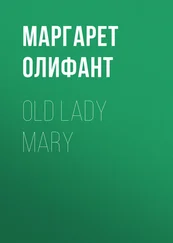Маргарет Олифант - Sir Robert's Fortune
Здесь есть возможность читать онлайн «Маргарет Олифант - Sir Robert's Fortune» — ознакомительный отрывок электронной книги совершенно бесплатно, а после прочтения отрывка купить полную версию. В некоторых случаях можно слушать аудио, скачать через торрент в формате fb2 и присутствует краткое содержание. Издательство: Иностранный паблик, Жанр: foreign_prose, literature_19, foreign_antique, на английском языке. Описание произведения, (предисловие) а так же отзывы посетителей доступны на портале библиотеки ЛибКат.
- Название:Sir Robert's Fortune
- Автор:
- Издательство:Иностранный паблик
- Жанр:
- Год:неизвестен
- ISBN:нет данных
- Рейтинг книги:5 / 5. Голосов: 1
-
Избранное:Добавить в избранное
- Отзывы:
-
Ваша оценка:
- 100
- 1
- 2
- 3
- 4
- 5
Sir Robert's Fortune: краткое содержание, описание и аннотация
Предлагаем к чтению аннотацию, описание, краткое содержание или предисловие (зависит от того, что написал сам автор книги «Sir Robert's Fortune»). Если вы не нашли необходимую информацию о книге — напишите в комментариях, мы постараемся отыскать её.
Sir Robert's Fortune — читать онлайн ознакомительный отрывок
Ниже представлен текст книги, разбитый по страницам. Система сохранения места последней прочитанной страницы, позволяет с удобством читать онлайн бесплатно книгу «Sir Robert's Fortune», без необходимости каждый раз заново искать на чём Вы остановились. Поставьте закладку, и сможете в любой момент перейти на страницу, на которой закончили чтение.
Интервал:
Закладка:
“And why? I must not do this or the other, and who are you that dares to say so? I am my mother’s daughter as well as my father’s, and if that’s not as good blood, it has a better heart. I might go there—they would not refuse me.”
“Without a penny,” said Robina. “Can you think o’t, Miss Lily? And is that no banishment too?”
Lily rose from her chair, shaking herself free from her maid, with her pretty hair all hanging about her shoulders. It was pretty hair, though it was brown like every-body else’s, full of incipient curl, the crispness yet softness of much life. She shook it about her with her rapid movement, bringing out all the undertones of color, and its wavy freedom gave an additional sparkle to her eyes and animation to her look. “Without a penny!” she cried. “And who is caring about your pennies? You and the like of you, but not me, Beenie—not me! What do I care for the money, the filthy siller, the pound notes, all black with the hands they’ve come through! Am I minding about the grand dinners that are never done, and the parties, where you never see those you want to see, and the balls, where– Just a little cottage, a drink of milk, and a piece of cake off the girdle, and plenty to do: it’s that that would please me!”
“Oh, my bonnie Miss Lily!” was all that Beenie said.
“And when I see,” said the girl, pacing up and down the room, her hair swinging about her shoulders, her white under-garments all afloat about her in the energy of her movements, “that other folk think of that first. Whatever you do, you must not risk your fortune. Whatever you have to bear, you must not offend your uncle, for he has the purse-strings in his hand. Oh, my uncle, my uncle! It’s not,” she cried, “that I wouldn’t be fond of him if he would let me, and care for what he said, and do what he wanted as far as I was able: but his money! I wish—oh, I wish his money—his money—was all at the bottom of the sea!”
“Whisht! whisht!” cried Beenie, with a movement of horror. “Oh, but that’s a dreadful wish! You would, maybe, no like it yourself, Miss Lily, for all you think now; but what would auld Sir Robert be without his money? Instead of a grand gentleman, as he is, he would just be a miserable auld man. He couldna bide it; he would be shootin’ himself or something terrible. His fine dinners and his house, and his made dishes and his wine that costs as much as would keep twa-three honest families! Oh, ye dinna mean it, ye dinna mean it, Miss Lily! You dinna ken what you are saying; ye wouldna like it yoursel’, and, oh, to think o’ him!”
Lily threw herself down in the big chair, which rose above her head with its high back and brought out all her whiteness against its sober cover. She was silenced—obviously by the thought thus suggested of Sir Robert as a poor man, which was an absurdity, and perhaps secretly, in that innermost seclusion of the heart, which even its possessor does not always realize, by a faint chill of wonder whether she would indeed and really like to be poor, as she protested she should. It was quite true that a drink of milk and a piece of oatcake appeared to her as much nourishment as any person of refinement need care for. In the novels of her day, which always affect the young mind, all the heroines lived upon such fare, and were much superior to beef and mutton. But there were undoubtedly other things—Robina, for instance; although no thought of parting from Robina had ever crossed Lily’s mind as a necessary part of poverty. But she was silenced by these thoughts. She had not, indeed, ever confessed in so many words even to Robina, scarcely to herself, that it was Ronald who cared for the money, and that it was the want of any impulse on his part to do without it that carried so keen a pang to her heart. Had he cried, “A fig for the money!” then it might have been her part to temporize and be prudent. The impetuosity, the recklessness, should not, she felt, be on her side.
It was on the very next day that her decision was to be made, and it had not been till all other means had failed that Sir Robert had thus put the matter to the touch. He had opposed her in many gentler ways before it came to that. Sir Robert was not a brute or a tyrant—very far from it. He was an old gentleman of fine manners, pluming himself on his successes with “the other sex,” and treating all women with a superfine courtesy which only one here and there divined to conceal contempt. Few men—one may say with confidence, no elderly man without wife or daughters—has much respect for women in general. It is curious, it is to some degree reciprocal, it is of course always subject to personal exceptions; yet it is the rule between the two sections of humanity which nevertheless have to live in such intimate intercourse with each other. In an old bachelor like Sir Robert, and one, too, who was conscious of having imposed upon many women, this prepossession was more strong than among men of more natural relationships. And Lily, who was only his niece, and had not lived with him until very lately, had not overcome all prejudices in his mind, as it is sometimes given to a daughter to do. He had thought first that he could easily separate her from the young man who did not please him, and bestow her, as he had a right to bestow his probable heiress, on whom he pleased. When this proved ineffectual, he cursed her obstinacy, but reflected that it was a feature in women, and therefore nothing to be surprised at. They were always taken in by fictitious qualities—who could know it better than he?—and considered it a glory to stick to a suitor unpalatable to their belongings. And then he had threatened her with the loss of the fortune which she had been brought up to expect. “See if this fine fellow you think so much of will have you without your money,” he said. Lily had never in so many words put Lumsden to the trial, never proposed to him to defy Sir Robert; but she had made many an attempt to discover his thoughts, and even to push him to this rash solution, and, with an ache at her heart, had felt that there was at least a doubt whether the fine fellow would think so much of her if she were penniless. She had never put it to the test, partly because she dared not, though she had not been able to refrain from an occasional burst of defiance and hot entreaty to Sir Robert to keep his money to himself. And now she was to decide for herself—to give Ronald over forever, or to give over Edinburgh and the society in which she might meet him, and keep her love at the cost of martyrdom in her uncle’s lonely shooting-box on the moors. There was, of course, a second alternative—that which she had so often thought of: to refuse, to leave Sir Robert’s house, to seek refuge in some cottage, to live on milk and oatcake, and provide for herself. If the alternative had been to run away with her lover, to be married to him in humility and poverty, to keep his house and cook his dinners and iron his linen, Lily would not have hesitated for a moment. But he had not asked her to do this—had not dreamed of it, it seemed; and to run away alone and work for herself would be, Lily felt, to expose him to much animadversion as well as herself; and, most of all, it would betray fully to herself and to her uncle, with that sneer on his face, the certainty that Ronald would not risk having her without her money, that discovery which she held at arm’s-length and would not consent to make herself sure of. All these thoughts were tumultuous in her mind as she opened her eyes to the light of a new day. This was the final moment, the turning-point of her life. She thought at first when she woke that it was still the same misty moonlight on which she had shut her eyes, and that there must still be some hours between her and the day. But it was only an easterly haar with which the air was full—a state of atmosphere not unknown in Edinburgh, and which wraps the landscape in a blinding shroud as of white wool, obliterating every feature in a place which has so many. Arthur’s Seat and Salisbury Craigs and the Castle Rock had all disappeared in it from those who were in a position to see them; and here, in George Square, even the brown houses opposite had gone out of sight, and the trees in the garden loomed dimly like ghosts, a branch thrust out here and there. Lily asked herself, was it still night? And then her mind awoke to a state of the atmosphere not at all unusual, and a sense that the moment of her fate had arrived, and that every thing must be settled for her for good or for evil this day.
Читать дальшеИнтервал:
Закладка:
Похожие книги на «Sir Robert's Fortune»
Представляем Вашему вниманию похожие книги на «Sir Robert's Fortune» списком для выбора. Мы отобрали схожую по названию и смыслу литературу в надежде предоставить читателям больше вариантов отыскать новые, интересные, ещё непрочитанные произведения.
Обсуждение, отзывы о книге «Sir Robert's Fortune» и просто собственные мнения читателей. Оставьте ваши комментарии, напишите, что Вы думаете о произведении, его смысле или главных героях. Укажите что конкретно понравилось, а что нет, и почему Вы так считаете.












